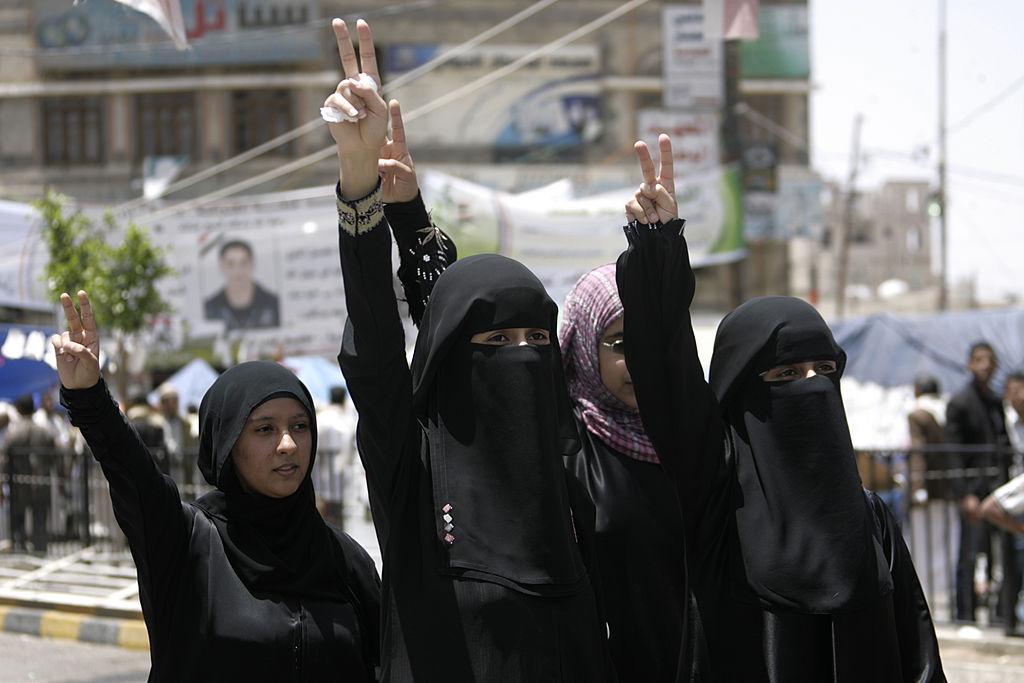Yemeni woman who campaigned for female literacy shot dead
Amat al-Aleem al-Asbahi assassinated in drive-by shooting in Taiz amid worries aid community is being targeted by extremists

Your support helps us to tell the story
From reproductive rights to climate change to Big Tech, The Independent is on the ground when the story is developing. Whether it's investigating the financials of Elon Musk's pro-Trump PAC or producing our latest documentary, 'The A Word', which shines a light on the American women fighting for reproductive rights, we know how important it is to parse out the facts from the messaging.
At such a critical moment in US history, we need reporters on the ground. Your donation allows us to keep sending journalists to speak to both sides of the story.
The Independent is trusted by Americans across the entire political spectrum. And unlike many other quality news outlets, we choose not to lock Americans out of our reporting and analysis with paywalls. We believe quality journalism should be available to everyone, paid for by those who can afford it.
Your support makes all the difference.A charity worker who campaigned for female emancipation in Yemen has been shot dead in an assassination attempt that has left other activists in the city of Taiz fearing for their own safety.
Amat al-Aleem al-Asbahi, who worked to improve female literacy in the war-torn country, was killed on 25 December by two motorcycle riders as she walked on a busy street in the city centre.
A fatwa issued by Islamic scholar Abdullah al-Odaini in September, banning women activists from mixing with men, had already curtailed Ms Asbahi and the aid community’s work, as has fierce air strikes and other violence.
All sides in Yemen’s civil war condemned the attack, but no party has claimed responsibility. Several sources have blamed the Yemeni-government allied Popular Resistance group, with which Mr Odaini is affiliated, but the group has denied the allegation.
No one has been arrested in connection to the murder and Middle East Eye reports that local journalists have stayed away from the story for fear of retribution.
Ms Asbahi, who was in her 30s, is related to the pro-Houthi rebel governor of the city Abdu al-Ganadi, leading to claims she may have been killed because of her family links as well as her work.
Shatha Nageeb, a charity worker who was also forced to stop working, told Middle East Eye she was shocked at how little had been done following her fellow activist’s murder.
“The assassination of [Ms] Asbahi is a clear indication that extremists can kill women with impunity, so we have to reduce our work and postpone any social activities until the end of the atrocious war,” she said.
The conflict in Yemen descended into a full-scale civil war in March 2015 when Iran-backed Shia Houthi rebels took over the capital of Sanaa.
Taiz, the country’s third largest city which is considered Yemen’s cultural capital, has seen fierce fighting since 2011.
Shortly afterwards, a Saudi-led coalition of Middle Eastern states began a bombing campaign on the country at the request of the exiled government, which the UN says has killed up to 10,000 people to date.
Saudi air and naval blockades have left many civilians on the brink of famine. More than half of the 28-million strong population is in need of food aid, and Yemenis are also suffering from outbreaks of disease such as cholera thanks to the inadequate provisions available for the three million people displaced from their homes.
Western governments, including the UK, have been sharply criticised for weapons sales to Saudi Arabia, which monitors say end up destined for use in the Yemeni war.
Join our commenting forum
Join thought-provoking conversations, follow other Independent readers and see their replies
Comments